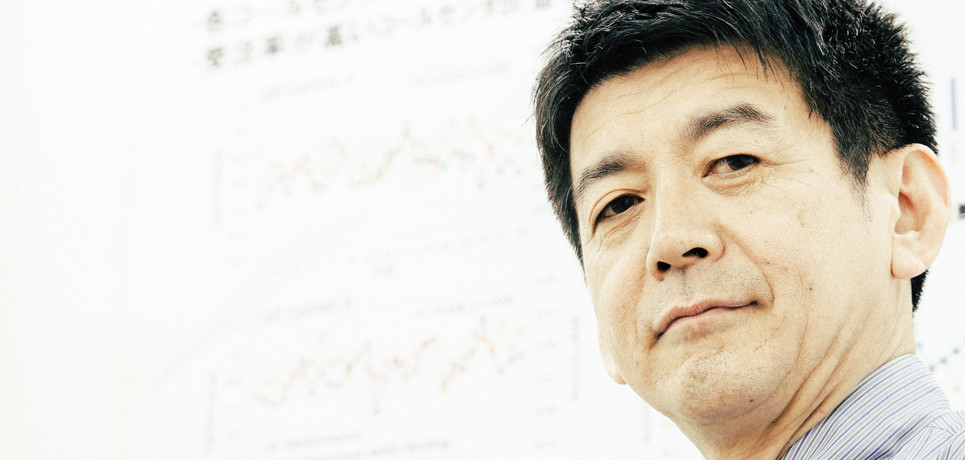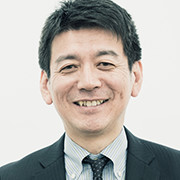(April 3, 2017)
Kazuo Yano
Corporate Chief Scientist, Research & Development Group, Hitachi, Ltd.
Governments which recognize the importance of a Super Smart Society have been promoting initiatives to realize Society 5.0. From an R&D perspective, the most important thing to consider about these is how best to achieve the "diversity" and "change" that they require. As society changes to become more complicated and diverse, it becomes less feasible to have one rule apply to everyone, as in the 20th century. However, the way we think, the way our society works, and the way company systems are constructed are still running on 20th century ideas. We must change this.
The concept of everyone following a single rule, without exceptions, was very strong throughout the 20th century. It was believed that tolerance and promotion of diversity would incur management costs and reduce efficiency. The idea that everyone following the same rule would improve costs and efficiency still lingers in our current way of thinking. We must change that way of thinking and be flexible in tolerating diversity.
When we think about AI, no matter how deep we delve into its algorithms, or how much data we amass, there is actually rather little it can do. What's most important is its numerical results - its outcomes. The importance of its outcomes, as well as its nurturing of changes and diversity, are actually two sides of the same coin. As long as we are able to achieve desirable numerical results, it can be done by instituting diversity as necessary based on the needs of people, society, and local conditions – eliminating the necessity for everyone to follow the same rules. People and businesses each have their own backgrounds, histories, and intelligences. Fostering the diversity necessary to utilize these, is known as "outcome thinking."
When we think about what the most important outcome would be for society as a whole, we arrive at the word "happiness." The ancient Greeks and Confucius both used this as a word to represent the most extreme outcome for humans. If we could quantify this "happiness" and feed it into AI as data, we would be able to utilize the abilities of diverse people to improve the happiness of society as a whole. Search engines have been our means to increase human abilities for approximately the last 10 years. As a way to use the information available on the internet to increase our abilities, we have come to use them on a daily basis. However, this information is only a small part of the world's data. In real life, human behavior occurring in real time cannot be represented in search results. What's more, it can't be utilized as data. All the actions that happen inside a company go completely unused as data.
It will be necessary to take a very systematic approach in order to begin using these types of data. As the performers of these actions are humans, this also relates directly to happiness. This is because when placed in unhappy circumstances, humans become extremely unproductive. Although there are clues to solving this problem hiding in various places, they are difficult to see from inside unhappy circumstances, making the desire and innovation to overcome those circumstances and get to the next step all but impossible. The fact human happiness and the productivity of businesses and people are fundamentally related, is something that we in R&D see in quantitative data.
As AI changes, so too does other software. Conventional software performs its actions exactly as dictated by the logic of its code, never surpassing these actions. As such, the same input will necessarily produce the same outcome.

In contrast to that, the multi-purpose AI developed by Hitachi can behave with totally different logic based only on changes to its input settings or data. By inputting the data of each individual company's unique characteristics or restrictions into the multi-purpose AI, each data profile will behave with a completely different logic. Multi-purpose AI can create a world the exact opposite of one in which everyone must follow the same rule. In other words, AI is a mechanism to achieve diversity.
For the past 4 billion years, life on Earth has progressed from simple organisms to diverse species with the mechanism known as "evolution." In "On the Origin of Species," Charles Darwin stressed that evolution was not progression, but a mechanism to achieve diversity. We humans still have not learned enough about this mechanism utilized by living creatures for the past 4 billion years. However, through AI, we have finally reached the stage at which we can reproduce it.
This has great implications for human society. The 20th century was one in which humans were forced to align themselves with machinery, systems, and standardized ways of working. A society with AI, or in other words a Super Smart Society, is the exact opposite. Technologies that utilize AI and data create diversity, and make full use of the unique characteristics and history of their locations, leading us to a new era.
Super Smart Society:
A society which can attend in detail to the various needs of society by providing necessary items or services to the people who require them, when they are required, in the amount required, thus enabling its citizens to live an active and comfortable life through high quality services regardless of difference in age, sex, region and language, etc.
Society 5.0:
Activities related to the realization of a shared vision for a "Super Smart Society" where the cyber space and the real world (physical space) are intricately connected. The naming describes a new type of society that will be led by innovations in science and technology, following on from hunter-gatherer, pastoral-agrarian, industrial and information.

Kazuo Yano, Dr. Eng.
Corporate Chief Scientist, Research & Development Group, Hitachi, Ltd.
Joined Hitachi, Ltd. in 1984. In 1993, he achieved the world's first successful operation of single-electron memory at room temperature. Since 2004, he has taken the lead in wearable technology, as well as the collection and utilization of big data. His papers have been cited 2500 times, and he has 350 patent applications. The wearable sensor he developed, known as the "Business Microscope," has been described by the Harvard Business Review as a "historic wearable device." He is known for his specialist breadth and depth from AI to nanotechnology. His literary work, "Invisible Hand of Data: The Rule for People, Organizations, and Society Uncovered by Wearable Sensors" (Soshisha Publishing), was elected one of BookVinegar's 2014 10 Best Business Books. Dr. Yano has a doctorate in engineering, he is an IEEE Fellow, a visiting professor at the Tokyo Institute of Technology, and a member of the Ministry of Education, Culture, Sports, Science and Technology's Information Science and Technology Committee. He has been awarded many international awards, including the 2007 MBE Erice Prize, and Best Paper at the 2012 International Conference on Social Informatics.
(As at the time of publication)